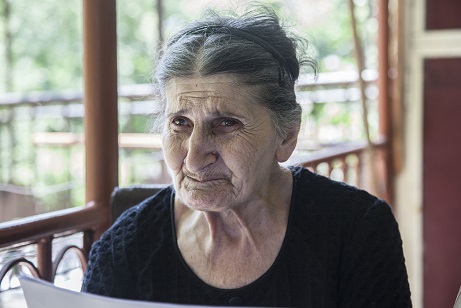More victims of Abkhazia war identified, returned home

The bodies of 10 Georgians found in a mass grave in Abkhazia have been identified and returned to their loved ones for an honourable burial.
All of the victims were military servants who lost their lives in a war in Georgia’s breakaway Abkhazia region 23 years ago.
People will have a chance to pay tribute to the fallen soldiers at the Sameba Holy Trinity Cathedral, the country’s central cathedral in Tbilisi’s Avlabari district, this evening and tomorrow morning.
The bodies will remain at the church until tomorrow afternoon, after which six of them will be buried at the Digomi Brothers’ Cemetery in Tbilisi with military honours and the remaining four will be buried at their family graveyards in different parts of Georgia.
Georgia’s Minister of Internally Displaced Persons from the Occupied Territories, Accommodation and Refugees of Georgia Sozar Subari thanked the breakaway side for its "close cooperation” in the process of opening mass graves on the territory of Abkhazia and identifying the victims.
Subari added there were tens of bodies yet to be identified and several more mass graves in Abkhazia would be opened this summer.

A grave of an unidentified soldier at the Digomi Brothers’ Cemetery in Tbilisi. Photo by Nino Alavidze/Agenda.ge
The war in Abkhazia in the early 1990s ended with the area becoming a breakaway region of Georgia and leaving hundreds of thousands displaced.
The confrontation started on August 14, 1992 and lasted for 403 days. It was one of many conflicts precipitated by the breakup of the Soviet Union and was one of the bloodiest, most consequential and most unresolved battles of the time.
During the 1992-93 conflict, tens of thousands of civilians and soldiers lost their lives and about 300,000 people were displaced.

Internally displaced Georgians walk dozens of kilometers to get to safety after they were forced to leave Abkhazia.
The war was waged mainly between Georgian government forces on one side and Abkhaz separatist forces on the other, who fought for independence of Abkhazia from Georgia. The separatists were supported by the Russian armed forces and North Caucasian hired fighters.
The families of those killed in Abkhazia could not retreive the bodies of their loved ones. The scale of the damage and the tense situation in the region meant it was impossible to identify the bodies and returning home. Those who were killed were buried in mass graves without being formally identified.
Authorities began to excavate the graves in May 2014 following lengthy negotiations between Tbilisi and Sokhumi.
International humanitarian aid group Red Cross helped facilitate cooperation between de-facto Abkhaz authorities and Georgian officials. The graves of the unknown victims were opened and DNA samples were taken from all the bodies.
Once the bodies were identified, they were returned to their families and loved ones. This process of opening the graves and identifying the bodies is still ongoing.
 Tweet
Tweet  Share
Share